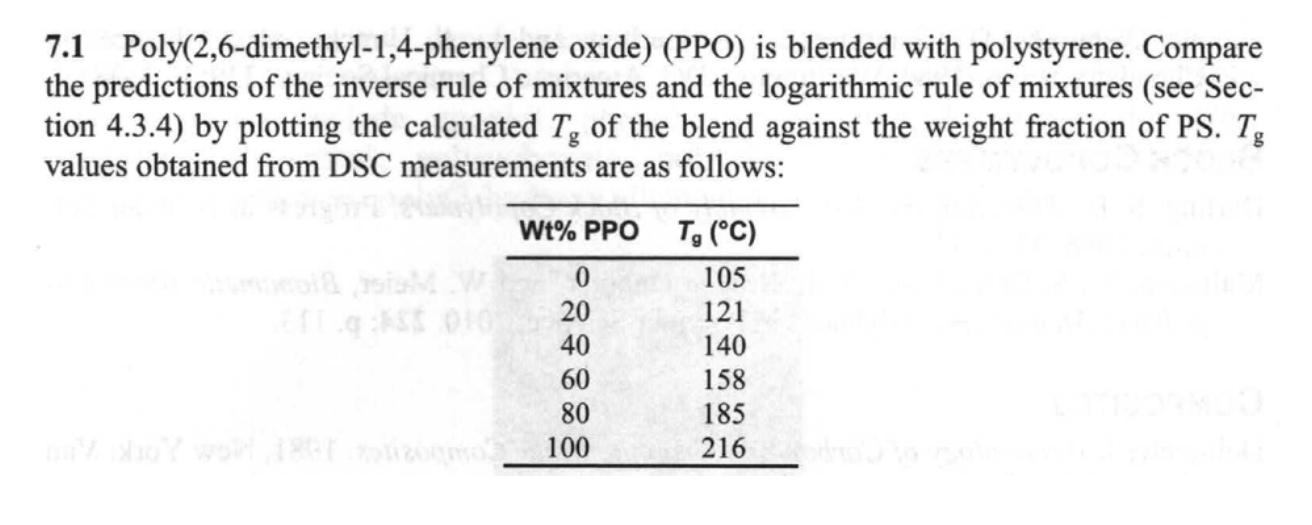Question
7.1 Poly(2,6-dimethyl-1,4-phenylene oxide) (PPO) is blended with polystyrene. Compare the predictions of the inverse rule of mixtures and the logarithmic rule of mixtures (see

7.1 Poly(2,6-dimethyl-1,4-phenylene oxide) (PPO) is blended with polystyrene. Compare the predictions of the inverse rule of mixtures and the logarithmic rule of mixtures (see Sec- tion 4.3.4) by plotting the calculated Tg of the blend against the weight fraction of PS. Tg values obtained from DSC measurements are as follows: TASS 010 Wt% PPO T, (C) 105 121 140 158 185 216 0 20 40 60 80 100
Step by Step Solution
3.44 Rating (157 Votes )
There are 3 Steps involved in it
Step: 1
71 when given b eg eg glas plot mixture each a Inverse rule of wt PPD component In T Tg in Celcius 2...
Get Instant Access to Expert-Tailored Solutions
See step-by-step solutions with expert insights and AI powered tools for academic success
Step: 2

Step: 3

Ace Your Homework with AI
Get the answers you need in no time with our AI-driven, step-by-step assistance
Get StartedRecommended Textbook for
Introduction to graph theory
Authors: Douglas B. West
2nd edition
131437372, 978-0131437371
Students also viewed these Organizational Behavior questions
Question
Answered: 1 week ago
Question
Answered: 1 week ago
Question
Answered: 1 week ago
Question
Answered: 1 week ago
Question
Answered: 1 week ago
Question
Answered: 1 week ago
Question
Answered: 1 week ago
Question
Answered: 1 week ago
Question
Answered: 1 week ago
Question
Answered: 1 week ago
Question
Answered: 1 week ago
Question
Answered: 1 week ago
Question
Answered: 1 week ago
Question
Answered: 1 week ago
Question
Answered: 1 week ago
Question
Answered: 1 week ago
Question
Answered: 1 week ago
Question
Answered: 1 week ago
Question
Answered: 1 week ago
Question
Answered: 1 week ago
Question
Answered: 1 week ago
View Answer in SolutionInn App



